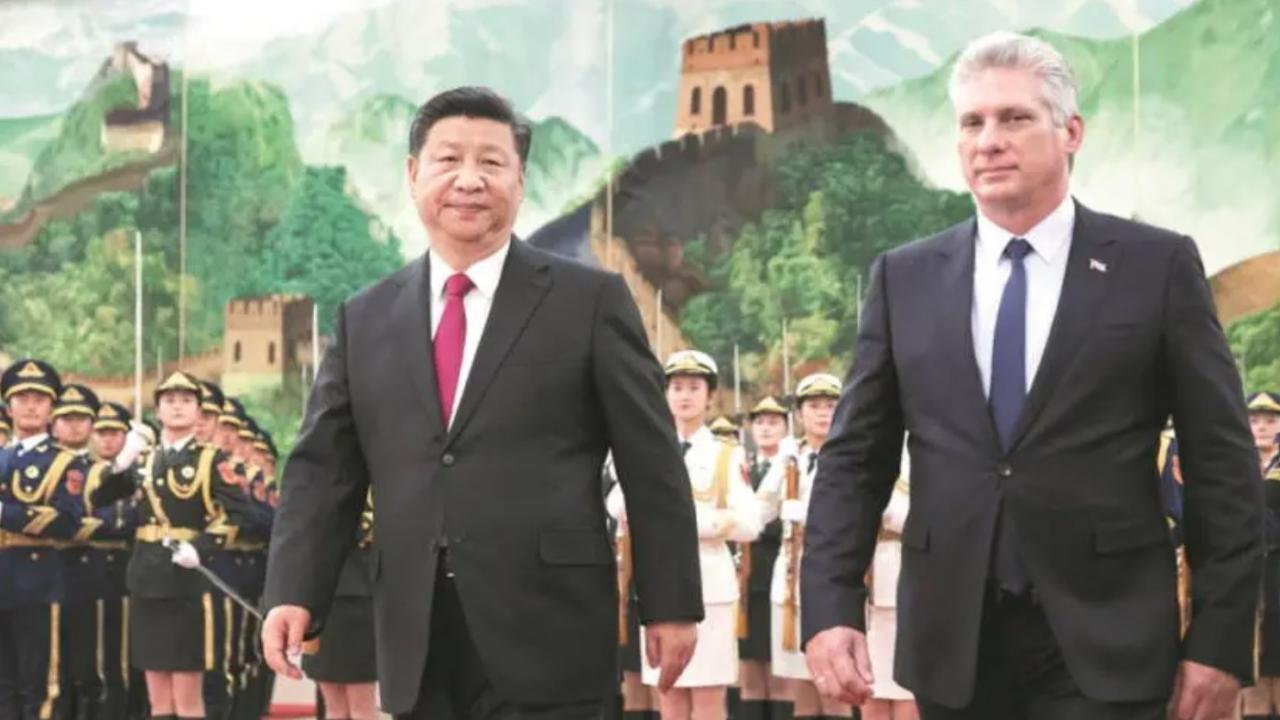Chinese President Xi Jinping has pledged support for Cuba’s “defense of national sovereignty.”Opposing foreign intervention and the US economic embargo and expanding strategic integration with Havana, report Reuters.
Xi made the comments during a meeting with Cuban President Miguel Díaz-Canel., on the sidelines of the BRICS summit in Johannesburg on Wednesday, according to a statement issued by the Chinese Foreign Ministry on Thursday. The Cuban Foreign Ministry has given very little information about the meeting in an official statement.
“China highly appreciates Cuba’s firm and consistent support to China “Issues that affect China’s fundamental interests and will firmly support Cuba in defending its national sovereignty, resisting foreign intervention and blockade, and doing everything possible to support Cuba’s economic and social development,” he told the crowd. For the text of the statement.
During conversations, Díaz-Canel affirmed that relations between Beijing and Havana are at an “unprecedented level.”
“The Cuban people deeply admire President Xi Jinping and sincerely thank China for its understanding and valuable support for Cuba’s just cause,” Díaz-Canel said at a meeting attended by Chinese Foreign Minister Wang Yi.
The meeting between the two leaders came months after the news broke in the media China made a secret deal with the Cuban government to set up electronic listening devices on the island.. But the US and Cuban governments have seriously questioned this statement.
China immediately condemned the US government and media for publishing inconsistent information and calling the allegations false. Havana issued similar statements.
Other Díaz-Canel meetings
Within the framework of XV BRICS Summit, Díaz-Canel “held meetings and congratulated the many leaders attending this important event,” the Presidency’s Twitter account posted.
In between sessions, the Cuban president spoke with Azali Azomani, head of Comoros and the African Union, saying “relations between the two countries are united by ties with Africa.”
Díaz-Canel reiterated the call for next month’s G-77 summit in Havana.
Further Exchanged with Dilma Rousseff, former President of Brazil and President of the BRICS BankNo mention was made of the “possibility of implementing joint projects”.
He also met Indian Prime Minister Narendra ModiHe thanked the country for loans to promote renewable energy and rice cultivation.
According to official gazette GranmaOn Thursday morning, at the Sandton Convention Centre, the venue of the meeting, leaders of the BRICS countries – Brazil, Russia, India, China and South Africa – submitted a final declaration, summarizing the results of the appointment.
An expansion of the group was announced, which On January 1, 2024, it will be joined by Saudi Arabia, Argentina, Egypt, the United Arab Emirates, Ethiopia and Iran.
right now, BRICS represents 30% of global gross domestic product (GDP). and 42% of the planet’s population. As of next year, that GDP will exceed 36% and its population will be close to 44%, according to the Communist Party organ.
“To move toward a more just and sustainable future, the time for collective action is not tomorrow, it’s now,” the official Cuban news agency (Agenzia Cubana de Notícias) reported in his address to the crowd.ACN)
He added that the Group of 77 and the BRICS “have the potential to bring about a historic change for future generations”.
“Our diversity strengthens the struggle for a new order that accommodates economic, geographic and political diversity in the 21st century.“, said Brazilian President Luiz Inacio Lula da Silva.
In the final declaration “The Security through the BRICS of multilateralism“and “concerns about the use of unilateral coercive measures, which are inconsistent with the principles of the United Nations Charter and create negative consequences, particularly in developing countries.”


:quality(85)/cloudfront-us-east-1.images.arcpublishing.com/infobae/BH6NLAQGXJGADFWTENBUV7Z7RQ.jpg)
:quality(85)/cloudfront-us-east-1.images.arcpublishing.com/infobae/3GK63ATFOMFAYNUAQKUL4WUJFM.jpg)

:quality(85)/cloudfront-us-east-1.images.arcpublishing.com/infobae/SJ35ZLSJ5NB4BWVRJPSK74P7AQ.jpg)